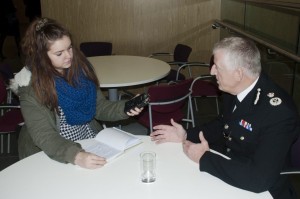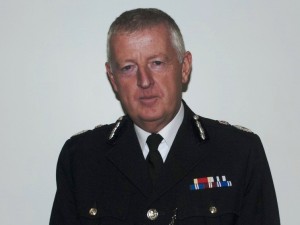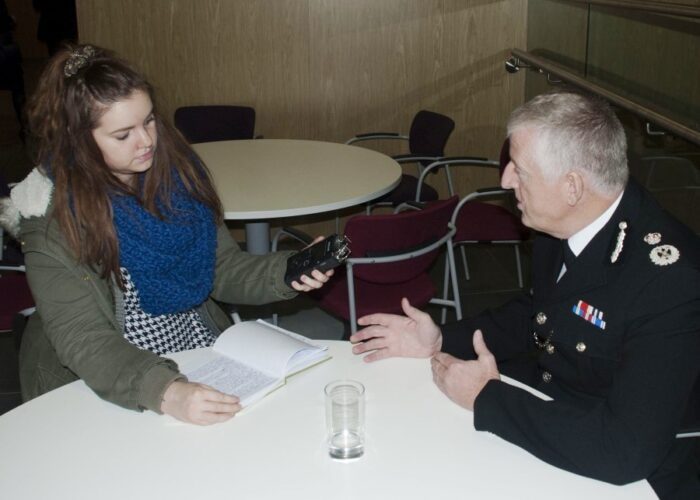
Merseyside Police Chief Constable Sir Jon Murphy has defended the state surveillance measures that some argue are intrusive, in a public lecture delivered at Liverpool John Moores University.
Entitled ‘The Surveillance Society’, the talk was the second in a series of discussions led by Merseyside’s leading police officer, in which he backed the use of CCTV, telephone interception and access to call data as methods of investigation, despite the threat these measures pose to public privacy.
Sir Jon, who was knighted in the Queen’s Birthday Honours this year, began his police career in 1975 and was on the front line of the 1981 Toxteth riots.
On ‘The Surveillance Society’, he denied allegations of the police trying to create a so-called ‘big brother’ state as a result of such investigatory powers.
JMU Journalism Radio’s Bethan Tolley talks to Chief Constable Sir Jon Murphy
Mayor Joe Anderson on libraries decision
He told JMU Journalism: “I do not think we are turning into a big brother state. For me, personal privacy and law enforcement capability are not mutually exclusive.
“There is a very real and present danger, most particularly from terrorism, and the public need to be kept safe. There are those who would describe that as big brother, I would describe it as common sense.”
The use of CCTV was widely discussed by the Chief Constable, who suggested that many lives are saved on a daily basis as a result of such surveillance. He also claimed it is the least intrusive method of policing.

“The police can’t hack into whatever they want, everything that the police do in terms of intrusive surveillance is regulated,” he said.
“Different kinds of surveillance are different in the kinds of intrusion they bring, for instance CCTV is out there, it isn’t terribly intrusive, and the public understand that it’s there to protect them.
“In terms of some of the other things that we do, such as access to call data such as telephone interception the public are less informed about it and more mistrustful of it, and therefore we perhaps don’t have the level of consent we need in order to monitor those people who are intent on doing the public harm.”
Additional reporting by Bethan Tolley

